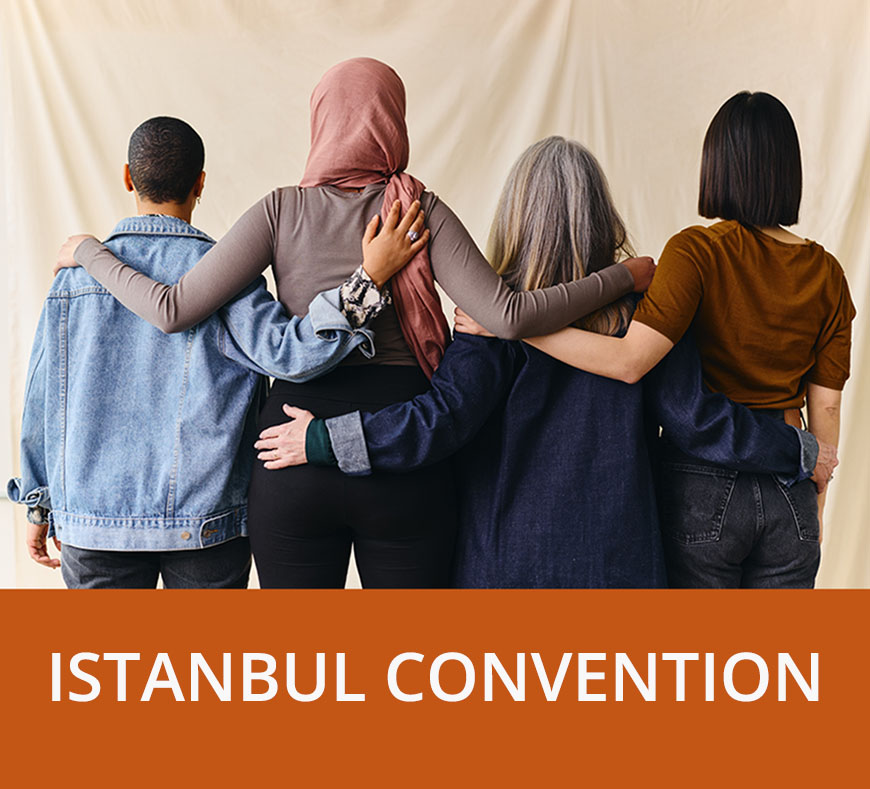In a report published today, the Council of Europe Group of Experts on Action against Violence against Women and Domestic Violence (GREVIO) welcomes the Spanish authorities’ steady commitment and the progress achieved in measures to prevent and combat violence against women. GREVIO also identifies areas which require urgent action for the country to fully comply with the Istanbul Convention, particularly improving the training of professionals dealing with victims and perpetrators of violence against women, including in the judiciary.
GREVIO welcomes that the Spanish authorities have continued to expand the legislative and policy framework to prevent and combat violence against women, in particular by adopting, in 2022, the Organic Law on the Comprehensive Guarantee of Sexual Freedom, which criminalises all sexual acts with a person who has not given free consent.
Other positive steps include the adoption of the Multi-Annual Joint Plan on Violence Against Women (2023-2027), substantial measures to widen the scope of policies and services to other forms of violence against women than intimate-partner violence, and the ongoing setting up of 24-hour comprehensive assistance centres for victims of sexual violence across the country. The allocation of funds for preventing and combating violence against women has continued to increase steadily.
The approach of law-enforcement agencies to women victims of violence, especially among specialised units, has improved substantially. GREVIO also welcomes that the principle of suspension of custody and visitation rights for children who have been exposed to domestic violence has been introduced in law, as well as a legal ban on the use of the so-called parental alienation syndrome.
Despite this progress, GREVIO urges the authorities to take several measures to ensure support, protection and justice for victims of violence against women and domestic violence.
GREVIO urges the Spanish authorities to step up the training of all professionals dealing with victims and perpetrators of violence against women on all forms of violence and to address the specific needs of women belonging to vulnerable groups. This training should be provided to justice, law enforcement, social welfare, healthcare, and education professionals.
Furthermore, GREVIO urges the authorities to ensure mandatory training of judges presiding over cases involving custody and visitation rights on the negative effects that witnessing violence against women has on children and the nature and dynamics of domestic violence.
GREVIO observes with particular concern that migrant and refugee women, women with disabilities, and women living in rural areas are disproportionately represented among victims of gender-based violence and calls on the authorities to step up their efforts to provide them protection and support.
Further measures are also needed to simplify and harmonise the process of official recognition of victims of all forms of violence against women to ensure their swift access across the country to protection and support services, irrespective of the form of violence they have suffered.
The report welcomes the steadily rising rate of convictions, reaching about 80% in cases of intimate-partner violence in 2023, although it expresses concern that the number of sentences for sexual violence remains low. Despite the changes introduced by Organic Law 10/2022 on Sexual Freedom, victims of sexual violence continue to experience secondary victimisation in judicial proceedings, due to challenges to their credibility, stereotypes about victims of rape among the judiciary, the need for repeated statements and non-respect for victim’s privacy as part of the proceedings.
Consequently, GREVIO stresses that further efforts are needed to identify and address legislative and procedural factors that contribute to secondary victimisation of women victims of violence during investigations and to undertake research into factors leading to attrition in cases of gender-based violence.
GREVIO considers it regrettable that, following the entry into force of this law, the merging of the offences of sexual assault and sexual abuse and the consequent enlargement of the range of sanctions allowed for the lowering of several hundreds of sentences handed down to perpetrators of sexual violence. Despite these developments, GREVIO considers that the full implementation of this law has the potential to significantly reduce the level of impunity for sexual violence by triggering increased reporting and more effective investigations into and prosecution of sexual violence.
In situations of immediate danger, the report notes that under the existing legislation, measures to protect women victims and their children can take up to 72 hours to be issued, which is too long to qualify as an emergency barring order under the convention. Therefore, the Spanish authorities should ensure that emergency barring orders can be issued to ensure the safety of women victims and their children in their own homes. In addition, an analysis of the reasons for the significantly higher rejection rates of requests for protection orders in some parts of the country should also be carried out.
Finally, GREVIO is concerned about the increase in reported cases of gang rapes, in which both perpetrators and victims are frequently very young. It stresses the impact, in Spain and elsewhere, of violent pornography on young men committing such crimes and the fact that it is exacerbated where access to contextualised discussions around sexuality, gender equality, non-stereotyped gender roles, mutual respect, gender-based violence against women and the right to personal integrity is limited.
GREVIO and Spain
Newsroom
Council of Europe experts praise Spain’s commitment to combatting violence against women, call for more training of professionals

GREVIO
Strasbourg
21 November 2024
- Diminuer la taille du texte
- Augmenter la taille du texte
- Imprimer la page




